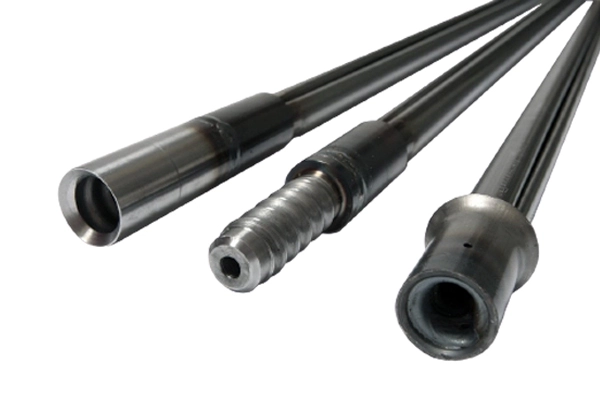In the mining and construction industries, ensuring stability and safety is crucial. One essential tool in achieving this is the use of expandable rock bolts. These devices provide significant support for underground structures, but their application also raises important environmental considerations. This article will explore the environmental impacts associated with the use of expandable rock bolts, highlight best practices, and discuss sustainable alternatives.
What Are Expandable Rock Bolts?
Expandable rock bolts are used to secure rock formations in underground mining and tunneling operations. These bolts are designed to expand within the rock mass, creating a tight fit that enhances their holding capacity. Typically made from high-strength steel, they provide crucial support, preventing rockfalls and ensuring the safety of underground workers.
Environmental Impacts of Expandable Rock Bolts
While the rock bolts are effective for ground stabilization, their use can pose environmental challenges. It is essential to assess these impacts to develop sustainable practices.
1. Material Sourcing and Production
The manufacturing of expandable rock bolts involves extracting raw materials, primarily steel. This process can lead to several environmental concerns, including:
- Mining Impact: The extraction of iron ore for steel production can result in habitat destruction and soil erosion. Mining activities may also disrupt local ecosystems, affecting biodiversity.
- Energy Consumption: The production of steel is energy-intensive, contributing to greenhouse gas emissions. This factor raises concerns about the carbon footprint associated with the bolts.
2. Installation and Ground Disturbance
The installation process of expandable rock bolts involves drilling into rock formations, which can lead to:
- Soil and Water Contamination: Drilling operations may introduce contaminants into the soil and groundwater. If lubricants or coolants used during drilling are not handled properly, they can leak and pollute local water sources.
- Erosion and Sedimentation: Disturbing the soil can lead to erosion, affecting surrounding ecosystems. Sediment runoff can impact water quality in nearby rivers and streams, harming aquatic life.
3. Long-Term Environmental Considerations
After installation, expandable rock bolts can have both positive and negative long-term environmental effects:
- Stability and Safety: Properly installed expandable rock bolts contribute to the stability of rock formations, reducing the likelihood of rockfalls. This stability is essential for minimizing environmental disturbances in the area surrounding mining sites.
- Potential for Decommissioning: At the end of a mine’s life cycle, the removal of expandable rock bolts can also pose environmental challenges. If not managed correctly, the removal process may lead to destabilization and environmental degradation.
Best Practices for Sustainable Use
To mitigate the environmental impacts associated with expandable rock bolts, several best practices can be implemented:
1. Responsible Sourcing
Opting for suppliers who prioritize sustainable practices in their material sourcing can make a significant difference. For instance, companies like Argentium emphasize the importance of environmentally friendly production methods and materials in their product offerings.
2. Effective Waste Management
Developing a comprehensive waste management plan is crucial. This includes:
- Proper Handling of Drilling Fluids: Ensuring that all fluids used during the drilling process are disposed of correctly to prevent soil and water contamination.
- Recycling Materials: Where possible, recycling the rock bolts at the end of their lifecycle can help reduce waste and conserve resources.
3. Environmental Monitoring
Implementing monitoring systems to assess environmental impacts during and after the installation of expandable rock bolts can lead to early detection of potential issues. Regular assessments can help ensure that any negative impacts are addressed promptly.
4. Community Engagement
Engaging with local communities is vital to understanding their concerns and ensuring that mining practices do not adversely affect their environment. Involving community stakeholders in planning and decision-making can foster cooperation and lead to more sustainable outcomes.
Sustainable Alternatives to Expandable Rock Bolts
To minimize environmental impact, it is crucial for us to explore sustainable alternatives instead of widely using them. Some options include:
1. Geosynthetic Reinforcement
Geosynthetic materials, such as geogrids and geotextiles, can provide effective ground support without the environmental drawbacks of metal bolts. These materials can improve soil stability while being more environmentally friendly.
2. Bio-based Anchoring Systems
Research into bio-based materials for anchoring systems is ongoing. These alternatives aim to reduce the reliance on steel and offer a more sustainable option for ground support.
3. Advanced Monitoring Technologies
Utilizing advanced monitoring technologies can reduce the need for extensive drilling and bolting. Systems that provide real-time data on ground stability can help minimize disturbances while ensuring safety.
Conclusion
The use of expandable rock bolts in mining and construction plays a critical role in ensuring safety and stability. The use of the bolts cannot be overlooked in terms of environmental considerations. By adopting sustainable practices, responsibly sourcing materials, and exploring alternative solutions, the industry can reduce its ecological footprint. It is essential for mining equipment suppliers and operators to work together towards sustainable solutions that balance operational efficiency with environmental responsibility. As the industry continues to evolve, these considerations will become increasingly important in shaping the future of mining and construction practices.




